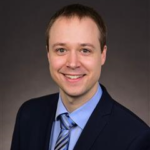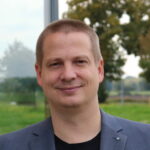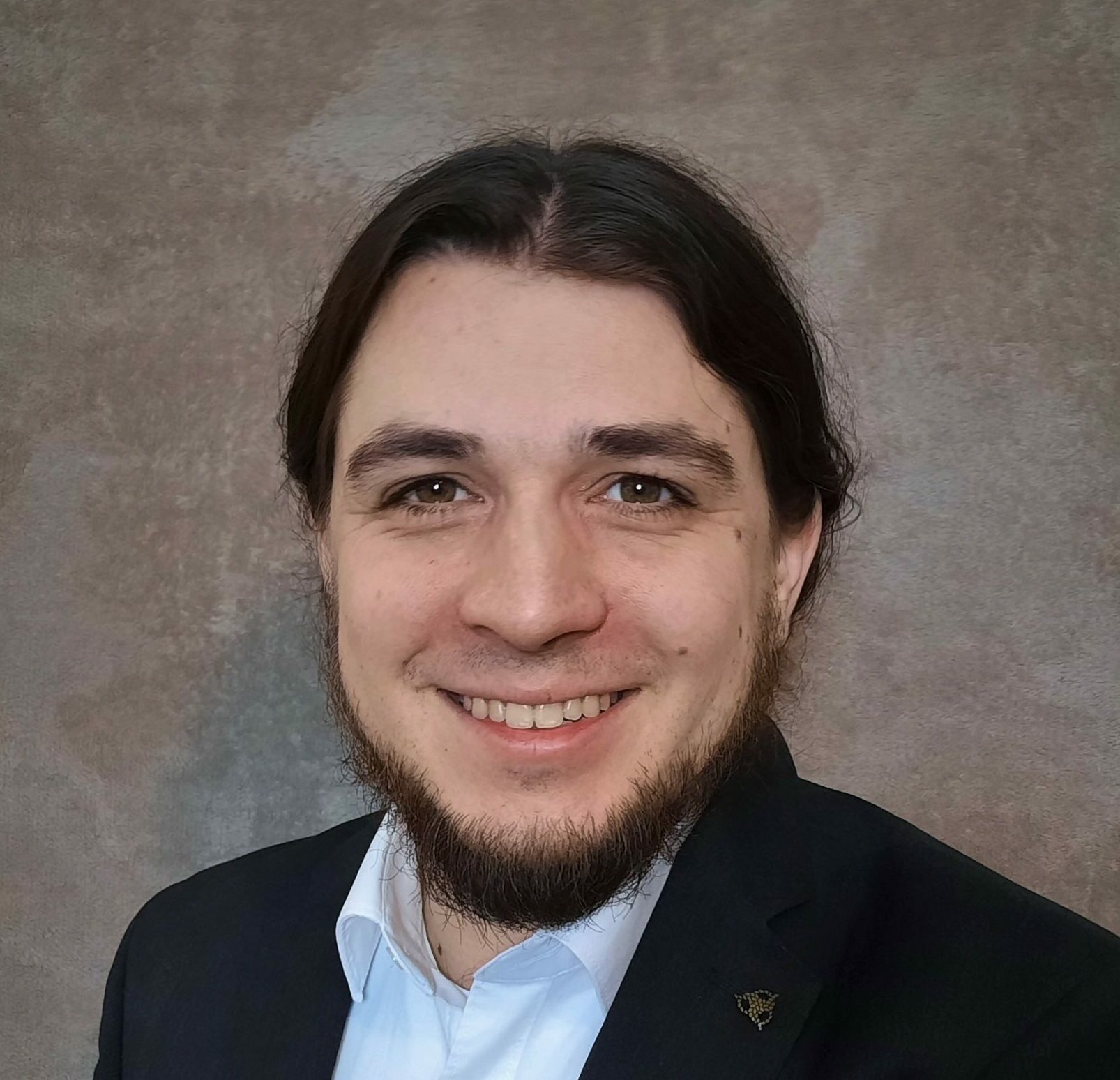-

Ferdinand Pscheidl (Fraunhofer EMFT) received the M.Sc. in electrical engineering and information technology at Technical University of Munich in 2021. He then joined the circuit design group of Fraunhofer Research Institution for Microsystems and Solid State Technologies (EMFT, Munich) to work as a circuit designer on neuromorphic computing. In his PhD he is pursuing with the chair of circuit design at the Technical University of Munich (TUM), he is investigating the hardware/software co-design of neuromorphic hardware with focus on scalability and timing accuracy.
-

Johannes Leugering (Fraunhofer IIS) studied Cognitive Science with focus topics Neuroinformatics and Artificial Intelligence at Osnabrück University. After completing his Master’s in 2015, he continued with a PhD in Neuroscience about the neural mechanisms of information processing and transmission. He worked as a researcher at Osnabrück University until he joined the Fraunhofer Institute for Integrated Circuits (FhG-IIS, Erlangen) in 2019, where he currently holds a position as expert for neuromorphic concepts & architectures in the Embedded AI group, situated within the communication systems division.
-

Dr.-Ing. Maik Simon (Fraunhofer IPMS-CNT) is specialist for semiconductor technology and electronic devices. After his study of electrical engineering (majoring microsystem engineering) at University of Siegen he changed for his doctorate to NaMLab in Dresden. The topic of his PhD thesis was the top-down fabrication of reconfigurable transistors (RFET) on base of silicon nanowires. Since 2021 he is now researching at Fraunhofer IPMS, Center Nanoelectronic Technologies (CNT) in Dresden for process integration of components for superconducting and semiconducting qubits on industry-standard 300 mm tools.
-

Sebastian Kersting studied biology at the Karlsruhe Institute of Technology (KIT) with research visits at the German Cancer Research Center (DKFZ), Heidelberg and the NTNU, Norway. Afterwards, he joined the Fraunhofer Institute for Cell Therapy and Immunology, Branch Bioanalytics and Bioprocesses IZI-BB and obtained his PhD in molecular biology at the University of Potsdam. His research in the group of Molecular Bio-Engineering focusses on the adaptation of biological processes to technological applications. Furthermore, he is part of the team for the Fraunhofer Center for Digital Diagnostics (ZDD).
-

Jannis Ehrlich studied physics and mathematics with focus on modelling and simulating solid state systems at the University of Bremen. After graduation in 2015 with a Master's degree in both subjects he started his doctoral studies in a joint project of the RWTH Aachen and the Forschungszentrum Jülich focusing on the simulation of correlated electron systems with the functional renormalization group method. Since 2021 he is working at the Fraunhofer Institute for Mechanics of Materials (FhG-IWM, Freiburg) where he uses quantum computing to improve the understanding of correlation effects in electronic systems. Besides this he is interested in the usage of physical effects for modern computing technologies like spintronics, motttronics and more.
